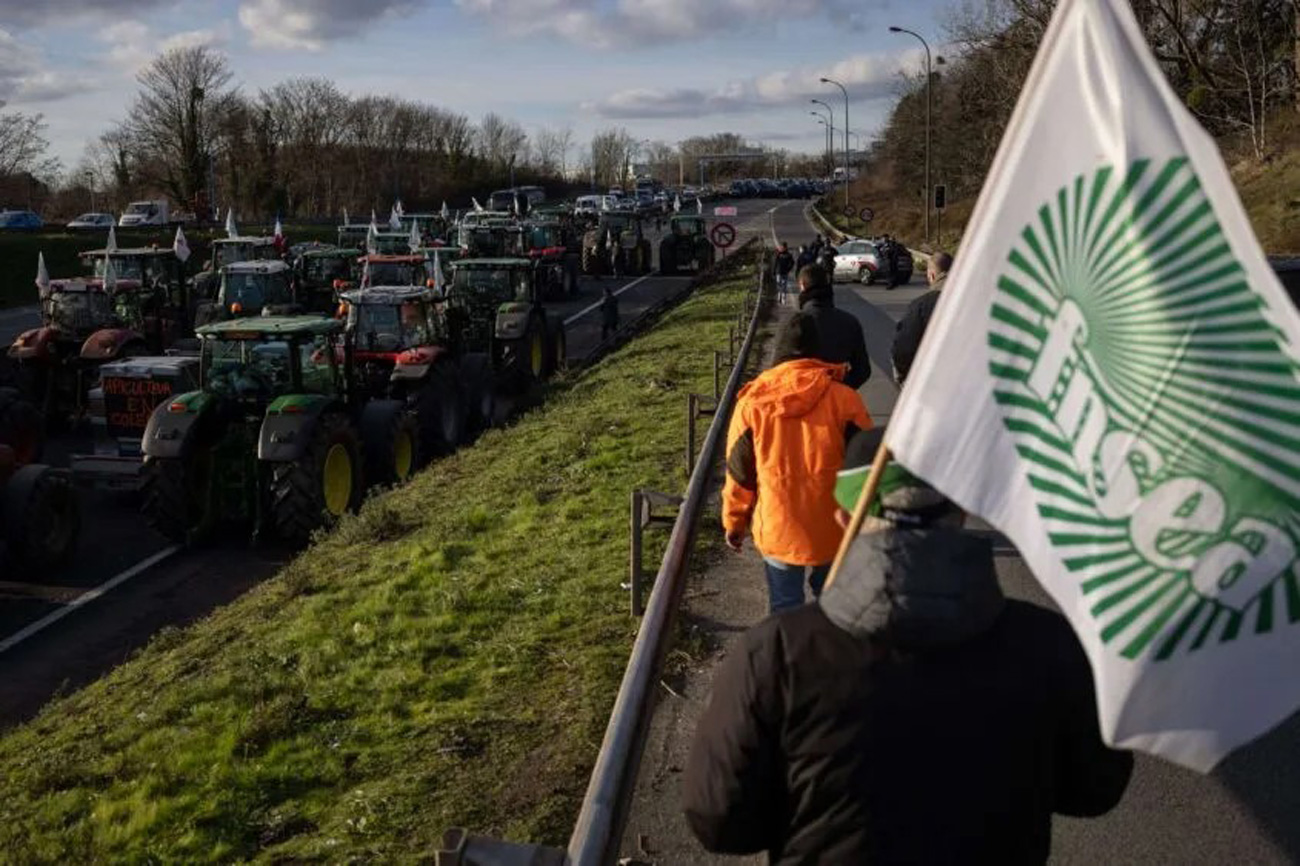

The movement of peasants from Iparralde and the French State has helped us to put the realities of the welfare of farmers and of unfair trade at world level at the forefront. The protest, led by the FNSEA and JA unions, had two main aspects: immediate economic aid and regulatory decline. Stimulated by the discomfort and complaint, the peasants, whether affiliated or not, immediately responded to the call of the blockade.
Seen from the outside and from the city, it may have taken the form of uprising, of an uncontrollable protest of thousands of uncontrollable people who are going to take Paris. At a time when the head of the FNSEA asks the peasants to enter the house, we can conclude that this has not been the case: it is an orchestrated protest between the FNSEA and the French Government, which have been in hand for many decades. It is a protest led by the FNSEA, a driving force for agro-industry, to put an end to the inconvenience caused along the way, the ecological standards. Obviously, he also had defenses to respond to the welfare of the peasants, because the blockades were being called for. The FNSEA has made a malicious game, taking advantage of the farmers’ desperation for their interests. We can cite two measures: Putting the Independent Biodiversity Agency in the hands of the State – faced with the agro-industrial lobby – and the suspension of the Ecophyto Plan aimed at reducing the use of pesticides by 50% by 2030. They have also achieved some measures to respond to the economic difficulties, as without them the feeling of contempt or truffle for the farmers would increase.
In the French State, which represses almost every social movement, it has been quite significant to see that there have been blockades led by the police with great patience and cooperation. Also significant is the follow-up by mainstream media, including the fact that the C News chain, in the hands of a billionaire industrialist, Vincent Bolloré, has placed its logo in the reverse.
The Confederation Paysanne trade union, which is committed to agroecology, has also joined the struggle with its own demands. But it has not been heard: it has not been called to the negotiating table, nor has it been taken into account in the mainstream media. The peasant movement brings a warning that should serve everyone: the ecological transition will lead to opponents on the road and political leaders will need strong political determination to move forward. In this period they have not, and in addition to the farmers, we have all lost.